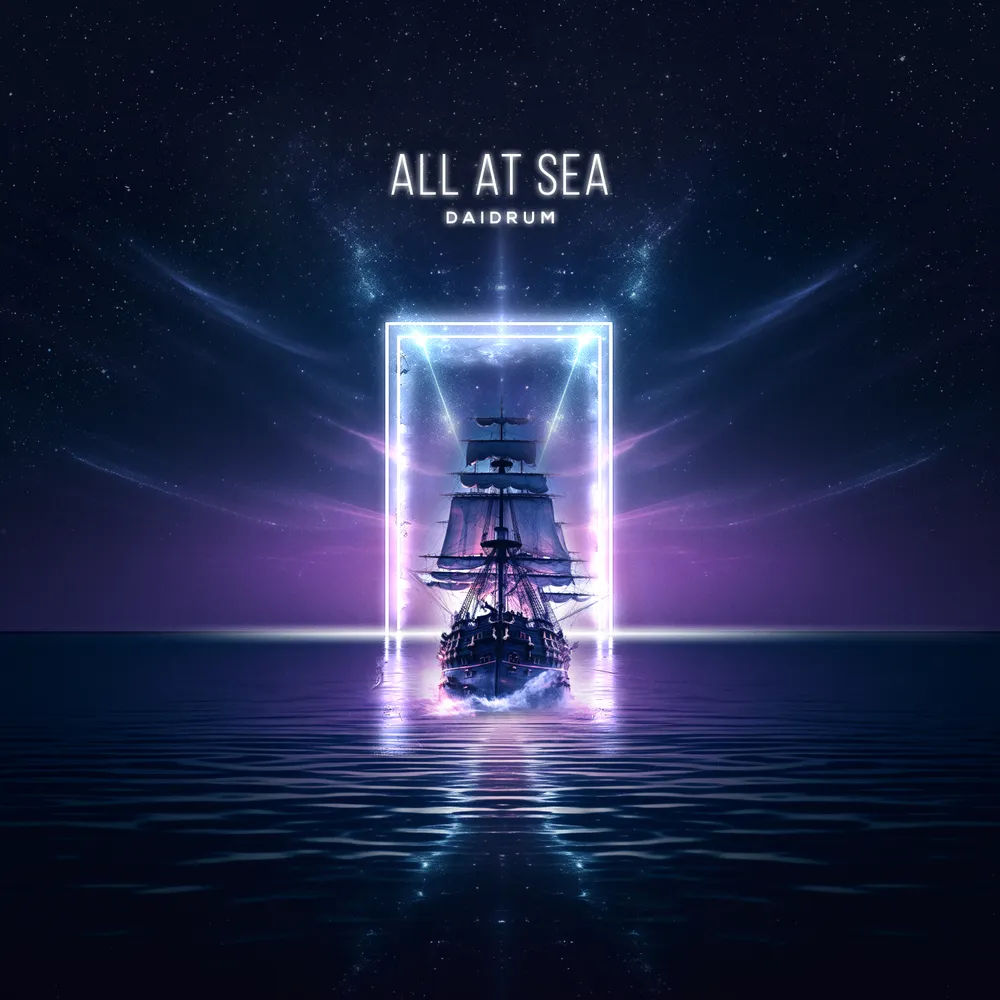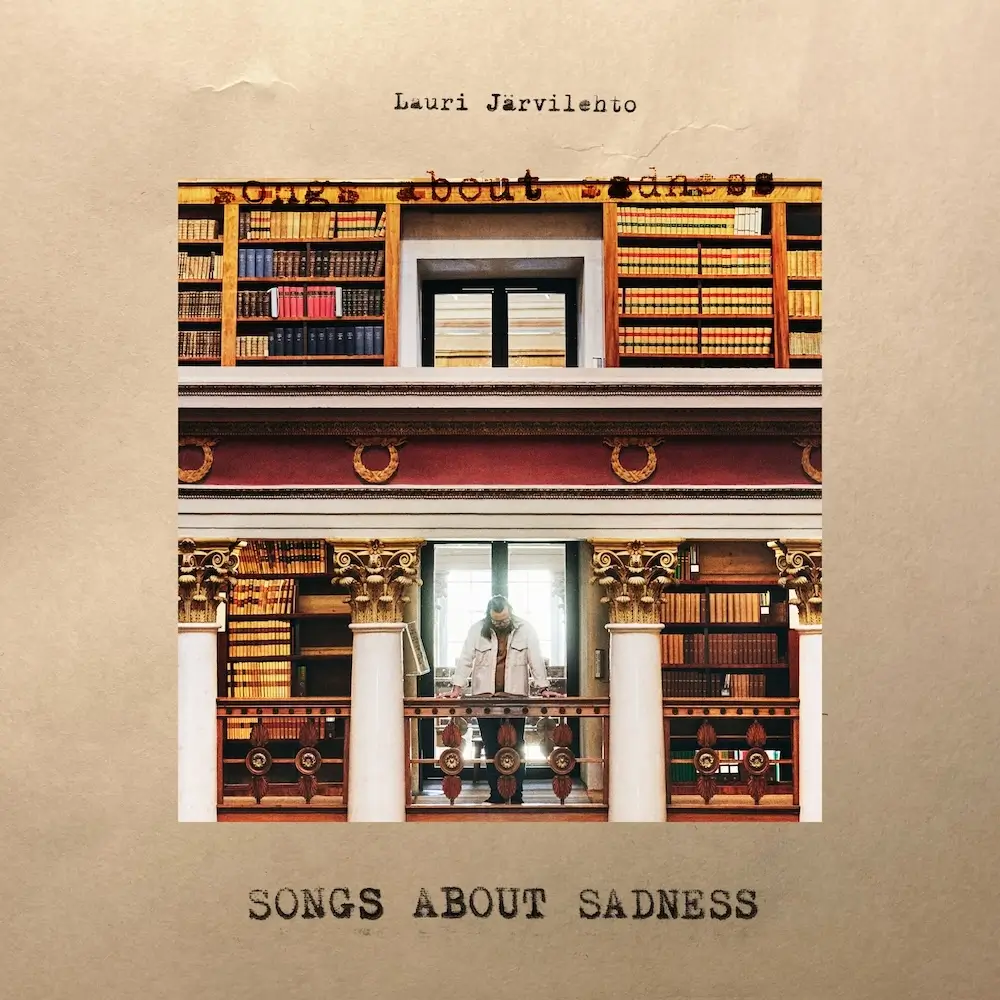You know when an album doesn’t just play, it sort of… arrives? Like someone gently kicking in the door to your emotional stability and saying, “Hi. Here’s my heart. Please look after it, it’s been through some things.” That’s All at Sea by daidrum.
This isn’t just prog rock; it’s prog rock for people who have cried in the car park of a garden center. It’s lush, complex, layered to within an inch of its life, and still somehow feels like it was made by someone who’d offer you a biscuit and a soft “same here” after telling you about the worst day of their life. It takes the scale and ambition of Pink Floyd, the sad precision of Steven Wilson, and the emotional apocalypse of Black Country, New Road, and uses all that as scaffolding for something far more personal: a quiet, stormy reckoning with grief, ageing, and the gnawing terror of modern parenthood.
Yes, there are literal sea songs. There are sailors. There’s PTSD. But All at Sea is not about boats. It’s about what it feels like to drift between stages of life, between people, through fog that never lifts. It’s an album about being lost, and not being sure you even want to be found. And miraculously, it works. Because it’s not pretending. It’s not posturing. It just is. Earnest, bruised, and fully aware of how ridiculous prog can be and choosing to be sincere anyway.

It’s gorgeously produced, mixed between London and Cornwall like some emotionally tormented scone, and every sound feels placed, not just played. Analog warmth bleeds into digital decay. Synths creak. Horns mourn. Vocals don’t just sing. Rather, they confess. And yet, it’s never melodramatic. It knows when to be loud, but it also knows the power of shutting the hell up and letting a single note say everything.
You’ll hear echoes of the classics: Pink Floyd, Marillion, Tears for Fears if they had chronic existential dread, but none of it feels retro. This isn’t nostalgia. It’s now. It’s too… now. It’s the sound of someone staring out the window of a collapsing world and thinking, “What if I processed this through multi-tracked guitars and a 10-minute ballad about time itself?”
What makes All at Sea hurt in the best way is how human it is. Not just musically sophisticated, but felt, in the bone-deep way that makes you pause mid-song, suddenly remembering your dad’s voice or the silence after a funeral. This is prog rock for the emotionally devastated. Prog rock that knows you’re not okay, and doesn’t try to fix it. It just sits with you in the storm.
And when it ends? It doesn’t resolve. It just leaves. Like someone walked out of the room and forgot to close the door behind them. And you’re left there, alone, but not quite the same.
This isn’t a debut. It’s a quiet exorcism with guitars. Daidrum has made something extraordinary and whether you’re a lifelong prog nerd or just someone with feelings you haven’t unpacked since 2013, All at Sea is going to reach in, rearrange your organs, and leave you saying, “Oh. Oh no. I wasn’t ready for that.”
To feature one song from this album, I would like to point to Song of Time, which is the kind of track that makes you sit bolt upright halfway through and go “Wait… am I crying or is the synth crying?” It’s a 10-and-a-half-minute emotional gravity well, like Basketball Shoes got swallowed by a dying computer and came out the other side as a digital elegy for lost futures. Everything here feels like it’s glitching under the weight of its own sadness as saxophones wailing like haunted modems, synths shimmering like they’re trying to remember a melody they forgot in 1998. It builds slowly, methodically, almost cruelly, stacking devastation upon devastation until you’re not sure if you’re still listening to a song or just feeling it in real-time. This track is the album’s thesis statement, and it’s a highly recommended listen.
All At Sea doesn’t just show off; it feels. It’s prog rock with trauma, with kids, with a mortgage and a lingering sense of loss. And somehow, that makes it better. This is what happens when you take all the technical wizardry and narrative grandeur of the genre and aim it squarely at the heart. It’s not just a record. It’s a reckoning. It stares into the abyss, sighs heavily, and writes a ten-minute love song about it anyway. And honestly? We’re lucky it did.
Follow daidrum
About the Author

A tenured media critic known working as a ghost writer, freelance critic for various publications around the world, the former lead writer of review blogspace Atop The Treehouse and content creator for Manila Bulletin.









